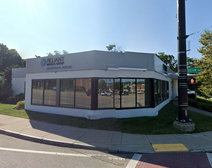For doctors, financial pressure is on
When Worcester-based Reliant Medical Group announced the layoff of 78 employees early last month, the healthcare provider cited a projected budget shortfall.
The reasons had to do with the ongoing efforts by businesses and government agencies to slow the growth of healthcare expenditures. Reimbursement rates from government insurance, particularly MassHealth, has not risen in step with expenses, and private insurance plans had been forcing individuals to assume more of the costs of their own care, discouraging some from seeking treatment.
These issues are widespread for medical offices in Central Massachusetts and across the country.
“There is a cost squeeze going on in many physician practices,” said Dr. Dennis M. Dimitri, president of the Massachusetts Medical Society. “It's a classic combination of getting squeezed from both sides.”
Dimitri, who is vice chair of the Department of Family Medicine and Community Health at UMass Memorial Medical Center in Worcester, said Massachusetts has particularly high costs for employee compensation, rent and utilities. Meanwhile, the revenue sources for physician practices — reimbursement from private insurance or from government programs like Medicare and MassHealth — has stagnated or risen very little. That's a particular problem when it comes to MassHealth, the state's Medicaid program, because it has always reimbursed at lower rates than other kinds of insurance.
A June report from PricewaterhouseCoopers' Health Research Institute found U.S. spending on health care has been growing at a slower and slower rate in recent years—down from a whopping 11.9 percent increase in 2007 to a projected 6.5 percent increase in 2016. That still means healthcare spending is growing much faster than the economy as a whole, but it reflects pressure on insurers and providers to keep costs down.
The report found one big way employers are reducing insurance costs is by passing large parts of the cost of care on to patients. The percentage of employers offering only high-deductible plans jumped from 13 percent in 2012 to 25 percent in 2015. This cost-shifting tends to encourage patients to reduce their use of health services. The report found 28 percent of consumers surveyed avoided seeing a doctor because of cost, while 24 percent skipped prescription medicine or taken less than prescribed.
Aileen Clemente, executive director of the Worcester-based Saint Vincent Medical Group, said high-deductible plans, limited networks that direct patients to specific providers, and other shifts in insurance plans have made individuals more conscious of the cost.
“We have seen an increase in interest from patients in terms of which physicians are considered in-network for them, and what the impact on their out of pocket payment will be, particularly for procedures such as MRI, mammograms and outpatient procedures,” Clemente said.
Dr. Michael Sheehy, acting chief medical officer at Reliant, said in some cases patients avoid getting recommended treatments because of cost concerns.
“Some patients are not getting services that they really need,” Sheehy said.
Despite increased patient interest in the particulars of their insurance, it isn't always easy for the patient or provider to get the right information. A challenge of a high deductible plan is that patiens don't understand.their benefits.
“That's a big problem, even though the state mandates price transparency,” Sheehy said. “Different payers have different contractual rates with the same vendor for the same procedure.”
In other cases, Sheehy said, patients reach out over email or by phone to ask questions rather than coming in. That may be a sensible way to get information efficiently, but, under standard fee-for-service payment models, the doctor's group can't get paid for it.
Reliant has been a pioneer in switching from fee-for-service to global payment systems, in which a practice is paid to keep a given patient healthy and address any issues that arise, rather than being reimbursed for each service it provides. With global payments, email or telephone consults make more financial sense for the provider, but Sheehy said more than two thirds of Reliant's patients and almost half its revenue are still tied to fee-for-service plans.
High-deductible plans create an additional burden for providers because it is often difficult to collect payments from patients than from insurers.
“Our philosophy is to provide the care and worry about whether we can collect the money later,” said Dr. Leon Josephs, Reliant's acting CEO. “That creates a significant challenge for us.”
The portion of Reliant's patients who receive insurance through MassHealth has risen as the Medicaid program has expanded. While some providers limit the number of Medicaid patients they accept, Reliant does not.
“We're open to that population, and I think because of that we may have seen more growth in that population than other provider groups,” Sheehy said.













0 Comments